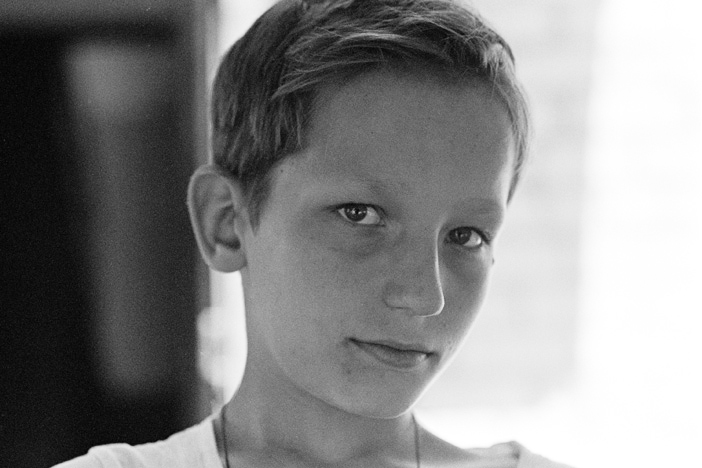
Jegor, 13 years old, Daniel's brother, lives in a
frontline village
»I live in this village with my brother, my parents and my grandparents. I lived in house no. 15, before we moved into our present home and there I attended school to the second grade. Then we moved to Horlivka because my father found a job there, but when the war started, we went back to the village.<< >>
The first thing I realized about the war were people loading military stuff, and soldiers. Many soldiers walked around here, three to four months before everything started.
I was happy, when we moved back from Horlivka to the village, because I saw my grandmother again as previously in Horlivka I had hardly the opportunity to visit her.
I still don't know exactly where I will visit school in the future, here or in Bakhmut, which is further away. In Horlivka, the lessons were all right, I had Ukrainian and once a week Ukrainian literature. But of course also Russian lessons and the all the lessons took place in Russian. We also got safety training there, our teacher showed us many things that we were not supposed to touch and told us things about that war* and this war. Items from that war and this war are exhibited in a museum inside our school, too. Now Horlivka is in DNR, so the school is officially a school of DNR, too.
It helps me in the actual situation to live relatively undisturbed and to be able to help my grandma who just recently left the hospital.
In daily life there are many changes, for example electricity and water were turned off and in the cold season we had no electricity or hot water. I don't think it was totally bad, but it was very hard. Many people helped us and brought us water to our village. I don't feel like going out of the house to get the water but I do it anyway to help my grandma and my parents.
I'm still talking to my friends from Horlivka and when they have time, they visit me or we talk on the phone.«
* Jegor means with »that war« the second world war.